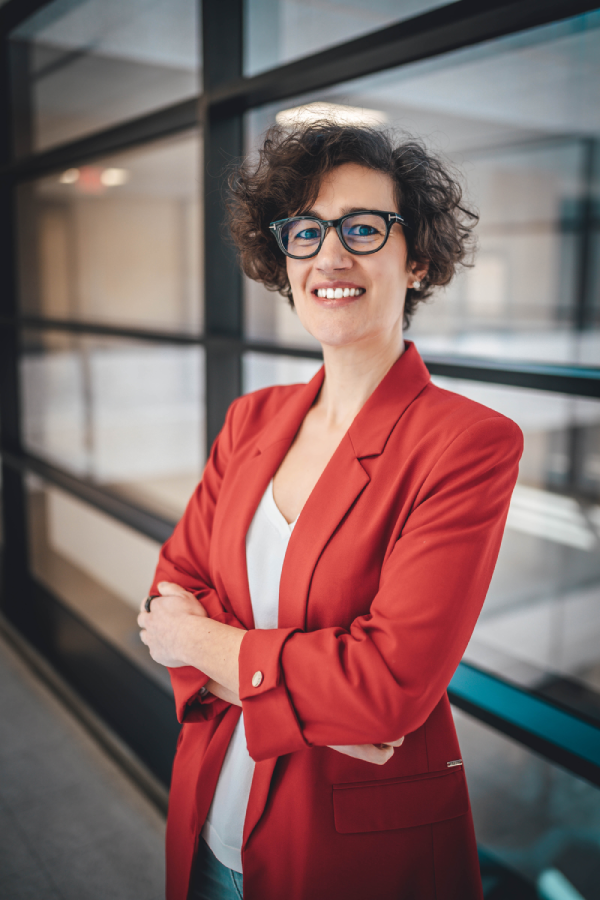David C. Zimmerman Assistant Professor of Mechanical & Aerospace Engineering Marzia Cescon, Ph.D., has been awarded $370,774 of a total $802,774 from the National Science Foundation (NSF) in a joint project with Arizona State University entitled "First-Principles Informed Data-Enabled Predictive Digital Twin of Human Physiology". This project is funded by the Foundations for Digital Twins as Catalyzers of Biomedical Technological Innovation (FDT-BioTech) program.
Cescon describes a "digital twin" as "a personalized, dynamically evolving model of a physical system." She invokes the famous Apollo 13 example to illustrate further: upon launching this spacecraft during the Apollo program, NASA also launched a mockup simulator on the ground at the Johnson Space Center to mirror the conditions that their craft were experiencing in space. This allowed NASA engineers to trial potential scenarios and solutions on the twinned, earthbound simulator when Apollo 13 suffered a serious malfunction, which ultimately allowed them to secure the successful return of its once-stranded crew.
This same concept is now being considered for applications in medical science.
"In this research, we aim to develop foundational techniques for the development of simulators of physiological systems using mathematical models and artificial intelligence to match patient-generated data to their virtual subjects to facilitate medical assessment, diagnosis, personalized treatments and in silico drug testing" Cescon says.
In silico drug testing refers to experimentation "done or produced by using computer software or simulation," as opposed to in vitro (taking place outside of a living organism) or in vivo (taking place inside a living organism) studies.
"Some of my research is concerned with the development of algorithms for the automatic regulation of blood glucose concentration in people with type 1 diabetes (T1D)," she adds. "The development of a digital twin of glucose metabolism in a T1D patient is very much in line with this research."
Type 1 diabetes is "a chronic disease characterized by the autoimmune destruction of the insulin-producing pancreatic beta cells," which can lead to abnormally (and dangerously) high blood glucose levels.
"Treatments are highly individual and must be adapted to metabolic and hormonal changes resulting from illness, exercise routines, menstrual cycles and pregnancy, and vary across the lifespan," Cescon said. "Digital cohorts of virtual patients have the potential to transform diabetes care on many levels, enabling [researchers] to carry out reliable pre-clinical, in silico trials of (possibly new) insulin treatments, facilitate the evaluation of therapeutic strategies by regulatory agencies in a timely and cost-effective way, and monitor the patients' disease progression and therapy effects across the lifespan by observing their digital 'copy'."
Cescon noted clinical cancer care as another discipline that may benefit from digital twins, potentially using them to predict the development of cancers and their responses to various treatments.
"Our research will develop foundational concepts behind human digital twins that will be applicable to a multitude of physiological systems and will allow us to guide medical assessments, diagnoses, personalized treatments and in silico drug testing," she concluded.
